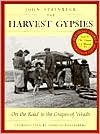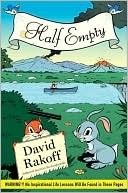Harvest Gypsies: On the Road to the Grapes of Wrath
Search in google:
Recently listed in the Top 100 List of the Century's Best American Journalism. Gathered in this important volume are seven newspaper articles on migrant farm workers that John Steinbeck wrote for The San Francisco News in 1936, three years before The Grapes of Wrath. With the inquisitiveness of an investigative reporter and the emotional power of a novelist in his prime, Steinbeck toured the squatters' camps and Hoovervilles of California. Here he found once strong, independent farmers—the backbone of rural America—so reduced in dignity, beaten in spirit, sick, sullen, and defeated that they had been "cast down to a kind of subhumanity." He contrasts their misery with the hope offered by government resettlement camps, where self-help committees, child nurseries, quilting and sewing projects, and decent sanitation were restoring dignity and indeed saving lives. The Harvest Gypsies gives us an eyewitness account of the horrendous Dust Bowl migration, a major event in California history, and provides the factual foundation for Steinbeck's masterpiece, The Grapes of Wrath. Included are twenty-two photographs by Dorothea Lange and others, many of which accompanied Steinbeck's original articles.Publishers WeeklyIn 1936, a San Francisco newspaper commissioned Steinbeck to write a week-long series of articles about California's underclass of white migrant farm workers, who became the models and the inspiration for The Grapes of Wrath. Reprinted here, Steinbeck's observations of migrant families and of their exploitation by wealthy agriculturists have not lost their potency. And as Wollenberg, a history professor at Vista College, Berkeley, Calif., points out, the plight of the newly destitute and newly homeless has particular relevance today. Steinbeck's journalism shares the enduring quality of his famous novel (but critics of Steinbeck will beware; his heavy-handed style is only slightly less obtrusive here). Especially interesting are the final articles, which analyze the history of California's migrant populations and propose federal programs to alleviate their distress. Steinbeck's outrage leads to an emotional indictment of then-current farm management as ``a system of terrorism that would be unusual in the Fascist nations of the world.'' Certain to engage students of both American literature and labor history. Photos not seen by PW. (Nov.)








